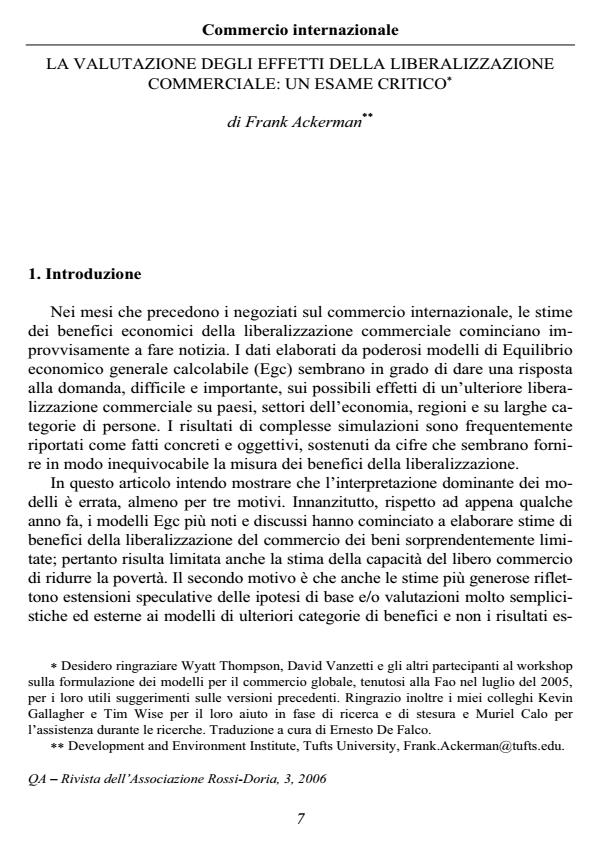La valutazione degli effetti della liberalizzazione commerciale: un esame critico
Journal title QA Rivista dell’Associazione Rossi-Doria
Author/s Frank Ackerman
Publishing Year 2006 Issue 2006/3
Language Italian Pages 32 P. 7-38 File size 133 KB
DOI
DOI is like a bar code for intellectual property: to have more infomation
click here
Below, you can see the article first page
If you want to buy this article in PDF format, you can do it, following the instructions to buy download credits

FrancoAngeli is member of Publishers International Linking Association, Inc (PILA), a not-for-profit association which run the CrossRef service enabling links to and from online scholarly content.
Assessing the Effects of Trade Liberalisation: A Critical Examination - Computable general equilibrium (Cge) models of world trade, often presented as demonstrating the benefits of trade liberalization, are now making rather less promising forecasts than they used to just a few years ago. The estimated benefits are not only smaller in the aggregate, but also skewed toward the developed countries; the expected contribution of trade liberalization to economic development and poverty alleviation is extremely limited. Calculation of the benefits to be expected of services liberalization, trade facilitation measures, and long-term productivity gains from trade liberalization remains problematical and speculative. The empirical limitations of Cge forecasts stem from broader theoretical weaknesses: the models are largely locked within a static framework and, oddly, assume that trade policy causes no changes in total employment, upwards or downwards. Models built on more adequate theories, which have only recently begun to appear, could offer a very different picture of the effects of trade liberalization.
Frank Ackerman, La valutazione degli effetti della liberalizzazione commerciale: un esame critico in "QA Rivista dell’Associazione Rossi-Doria" 3/2006, pp 7-38, DOI: